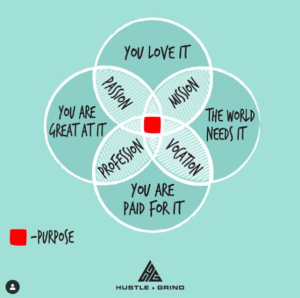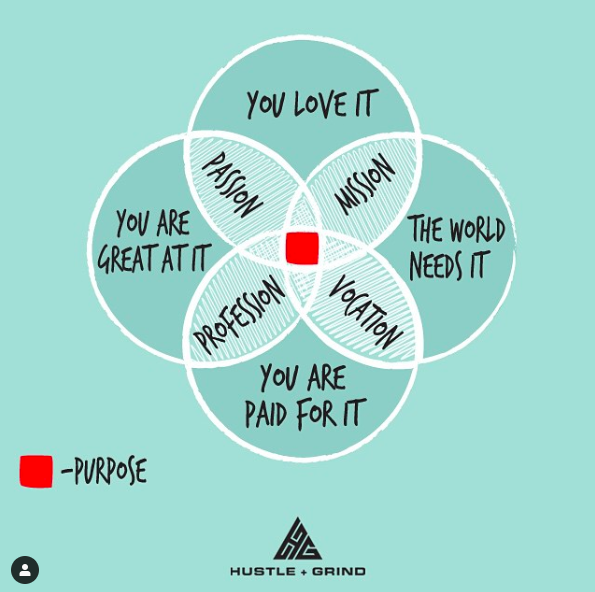
Venn diagram by Hustle & Grind
You have a college major you enjoy. You’ve taken all of the career quizzes and personality tests you could possibly find. You might have even read “What Color is Your Parachute” (which we very much support). Yet, when it comes time to choose which specific path you want to pursue after graduation, the options can feel, well, endless.
Spending some time in careful thought can help you discern not only what you enjoy the most, but also where you can have the biggest impact. If you’re wondering what type of career to pursue, spend some time reflecting on the following three questions:
What do you enjoy the most?
Do you love collaborating with people? Or prefer working solo? Do you enjoy playing with numbers and data, or have a preference for creative visual work? Think back to your classroom experiences, past jobs and internships, and the extracurriculars or volunteer opportunities you’ve participated in, and list out the aspects of each that you’ve found the most enjoyable. Get as detailed as possible, and notice any common themes that emerge.
What are your talents?
We all have things we’re naturally good at. Spend some time thinking about what you identify as your top talents. Pay attention to what your friends, family members, professors, and colleagues have noticed about you, too (sometimes they see things in us that we may not see ourselves!). Are you great at thinking on your feet and providing a persuasive argument? Can you create compelling marketing graphics in half the time as your classmates? Maybe your patience and ease around kids points to a potential future in education. Once again, spend some time listing what you’re great at, and note the common themes that come to the surface.
Where do you see a need that you could help meet?
Now, it’s time to think about impact. Where do you see a need in society that your gifts or talents might help meet? Perhaps your experience with social media marketing can help get the mom-and-pop businesses in your community a little more publicity. Maybe your passion for the environment can translate into work with a nonprofit whose mission is to ensure everyone has clean water. Or maybe your writing and editing skills means helping new and upcoming writers get published is in your future.
Thinking about the “why” of a career can help ground you in work that will keep you and your future colleagues working toward a shared mission or goal. It can also help you get to the sweet spot of work — where what you love and what you’re good at intersect with what can truly make a difference to others.






Leave A Comment